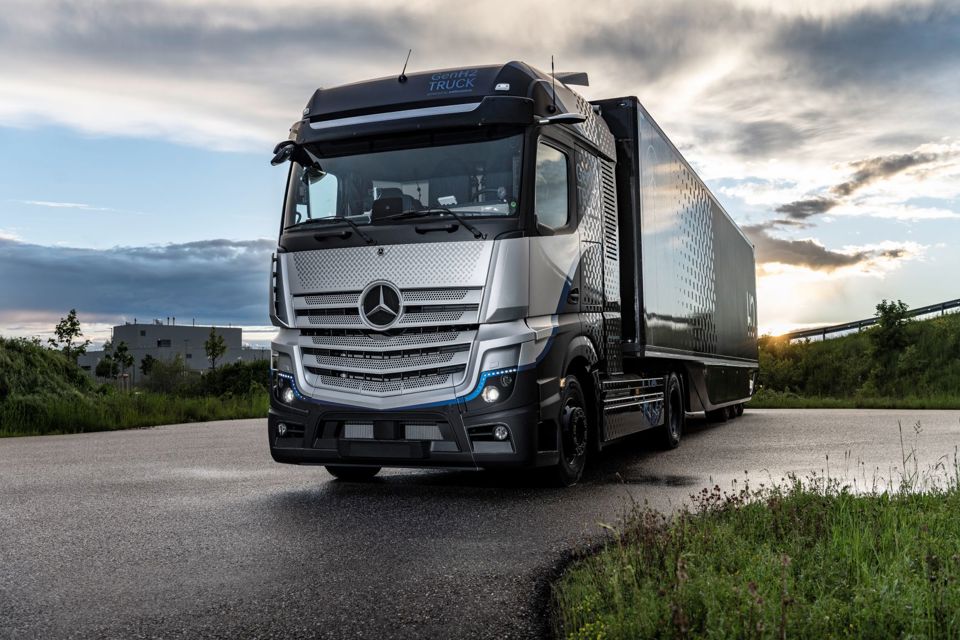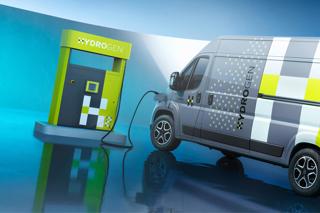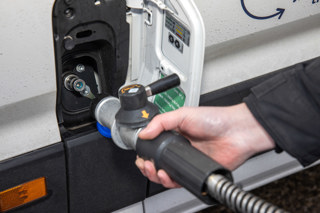Daimler Trucks has started testing its Mercedes-Benz GenH2 hydrogen fuel cell truck on a test track and will begin trials on public roads before the end of the year.
The vehicle is expected to achieve a range of more than 600 miles, to suit the demands of long-haul transport.
Martin Daum, chairman of the Board of Management of Daimler Truck AG and member of the Board of Management of Daimler AG, said: “We are consistently pursuing our technology strategy for the electrification of our trucks. We want to offer our customers the best locally CO2-neutral trucks — powered by either batteries or hydrogen-based fuel-cells, depending on the use case. We’re right on schedule and I’m delighted that the rigorous tests of the GenH2 Truck have started successfully.”
According to Daimler Trucks’ development plan, the vehicle will be tested on public roads before the end of the year. Customer trials are scheduled to begin in 2023. The first series-produced GenH2 Trucks are expected to be handed over to customers starting in 2027.
Development engineers at Daimler Trucks are designing the GenH2 Truck so that the vehicle and its components meet the same durability requirements as a comparable conventional Mercedes-Benz Actros. This means 700,000 miles on the road over a period of ten years and a total of 25,000 hours of operation.
The GenH2 Truck has been newly designed from the ground up. It features completely new components, which the developers are particularly focusing on during the tests. These components include the fuel-cell system, the all-electric powertrain, and all of the associated systems such as the special cooling unit.
In addition, the new components’ specific weight and position in the vehicle affect the truck’s handling properties. As a result, the vibrations caused by bumpy roads, for example, and especially by extreme situations, subject the fuel-cell truck to different forces than those in conventional vehicles. In order to obtain extensive information about this at an early stage, the current prototype is loaded during the tests with a payload of up to 25 tonnes for a gross vehicle weight of about 40 tonnes.
The vehicle will be fuelled by liquid hydrogen, which has a higher density and enables the use of smaller, lighter fuel tanks. By the end of the year, the engineers plan to have a new prototype tank system sufficiently mature to be used to continue the ongoing tests of the GenH2 Truck. The vehicle tests will then be conducted exclusively with liquid hydrogen tank systems until the series-production stage is reached.
“The hydrogen-powered fuel-cell drive will become indispensable for CO2-neutral long-haul road transport in the future. This is also confirmed by our many partners with whom we are working together at full steam to put this technology on the road in series-production vehicles.
“Moreover, considerable momentum is being generated by the clear commitment of national and European regulators to the use of hydrogen for road freight transport. Political support plays an important role in promoting the creation of an infrastructure for green hydrogen and making an economically viable use of fuel-cell trucks possible for our customers,” Daum added.





















Login to comment
Comments
No comments have been made yet.